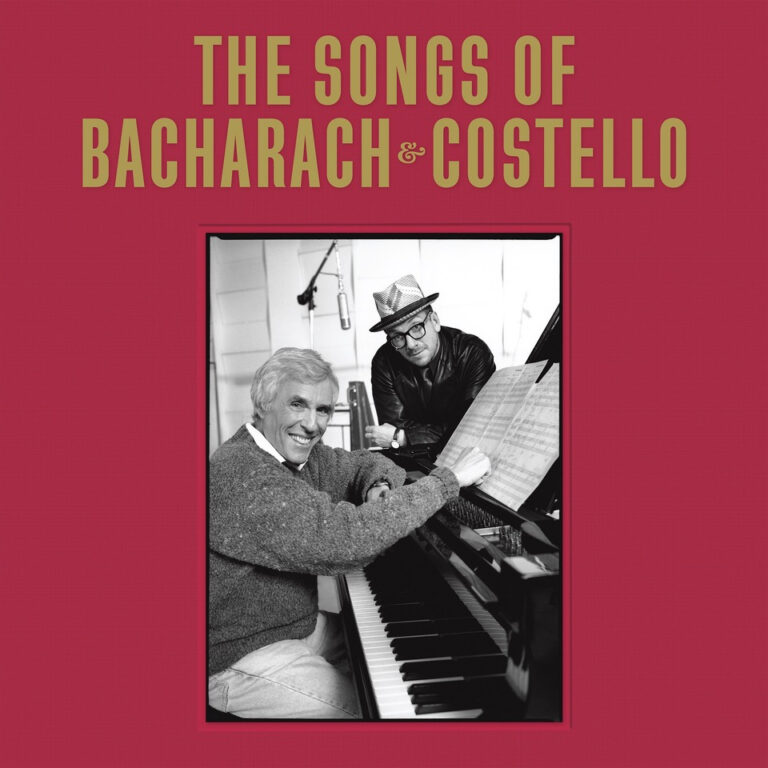The great songwriter Burt Bacharach, who teamed up most famously with lyricist Hal David, also worked for nearly three decades with Elvis Costello. That pairing may at first seem as unlikely as the one between Robert Plant and Alison Krause or the Christmas medley recorded by Bing Crosby and David Bowie. Take a close look at Bacharach and Costello’s bios and listen to their work, however, and you’ll begin to see why their collaboration made sense and bore fruit.
Costello – whose catalog embraces elements of genres as varied as new wave rock, country, pop, and classical – grew up listening to Bacharach/David songs and performed their “I Just Don’t Know What to Do with Myself” as far back as 1977. Bacharach, who died February 8 at age 94, was best known for the pop and easy-listening versions of his compositions. However, his music has proven a good fit over the years for artists ranging from the rock group Love and jazz musician Stan Getz to R&B singer Ron Isley of the Isley Brothers. Bacharach even played piano on Manfred Mann’s version of “My Little Red Book,” a song he wrote with David that arguably issues from the same musical universe as some of Costello’s early work. And doesn’t the latter’s “Alison” sound like something Bacharach and David could have written? (Ok, maybe not the line about the protagonist’s friend taking off her party dress.)
The new Songs of Bacharach & Costello, which features 19 previously unreleased tunes and three recently recorded numbers, collects all their collaborations and offers abundant evidence of how well they worked together. The anthology offers four CDs with a total playing time of three hours. A pair of included vinyl LPs duplicates some of its material and the set comes with two 20-page booklets, one containing lyrics and song credits and the other featuring a new 10,000-word essay by Costello.
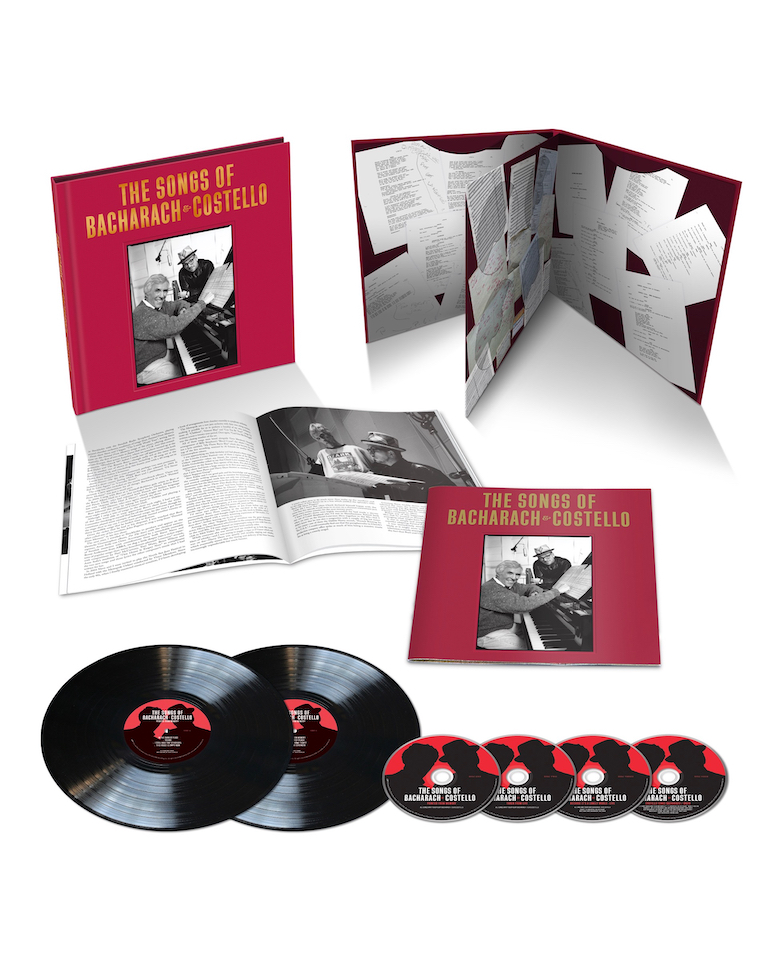
The first of the box’s CDs delivers a remastered copy of Painted from Memory, Bacharach and Costello’s excellent 1998 album, which features the Grammy-winning “I Still Have That Other Girl.” The second disc includes versions of songs from a proposed stage score performed by Costello or Bacharach as well as by such artists as Jenni Muldaur and Bill Frisell. Dominating the remaining two discs is superlative live material, most featuring Costello’s vocals and keyboard accompaniment by either Bacharach or Steve Nieve.
Among the tracks in the box are concert renditions of Bacharach/David classics that mark Costello as arguably the best of their interpreters. “I Just Don’t Know What to Do with Myself,” which scored for Dionne Warwick and Dusty Springfield; “Anyone Who Ever Had a Heart” and “I’ll Never Fall in Love Again,” both hits for Warwick; “Make It Easy on Yourself,” which rode the charts for Warwick, Jerry Butler, and the Walker Brothers; and “My Little Red Book,” which led off Love’s essential eponymous debut LP. Also here are Costello’s studio recordings of “Please Stay,” which Bacharach wrote with Bob Hilliard; and “Baby, It’s You,” which he penned with Mack David and Barney Williams. (These two recordings first appeared on Costello’s Kojak Variety and Out of Our Idiot, respectively.)
The hit versions of all these songs are excellent but many of them feature vocals and bouncy pop arrangements that belie their essential sadness. In Costello’s renditions, though, you can hear the heartache in every verse. Compare, for example, the Shirelles’ or the Beatles’ “Baby It’s You,” which make you want to tap your feet and sing along, with Costello’s mournful performance of the song. Or listen to how he turns the Drifters’ doo-wop-influenced “Please Stay” into a stark portrait of lovelorn desperation. As Costello concedes in his essay, he lacks the vocal range of some of the artists who have recorded Bacharach’s songs. “All I could do,” he writes, “was try to maintain their “emotional centre.” That he most certainly does.
Costello ends his essay by saying how grateful he is for “all the hours that I have shared with Burt” and adds, “I wait patiently for next time.” Sadly, that time won’t come, but at least we have this box.
Also Noteworthy
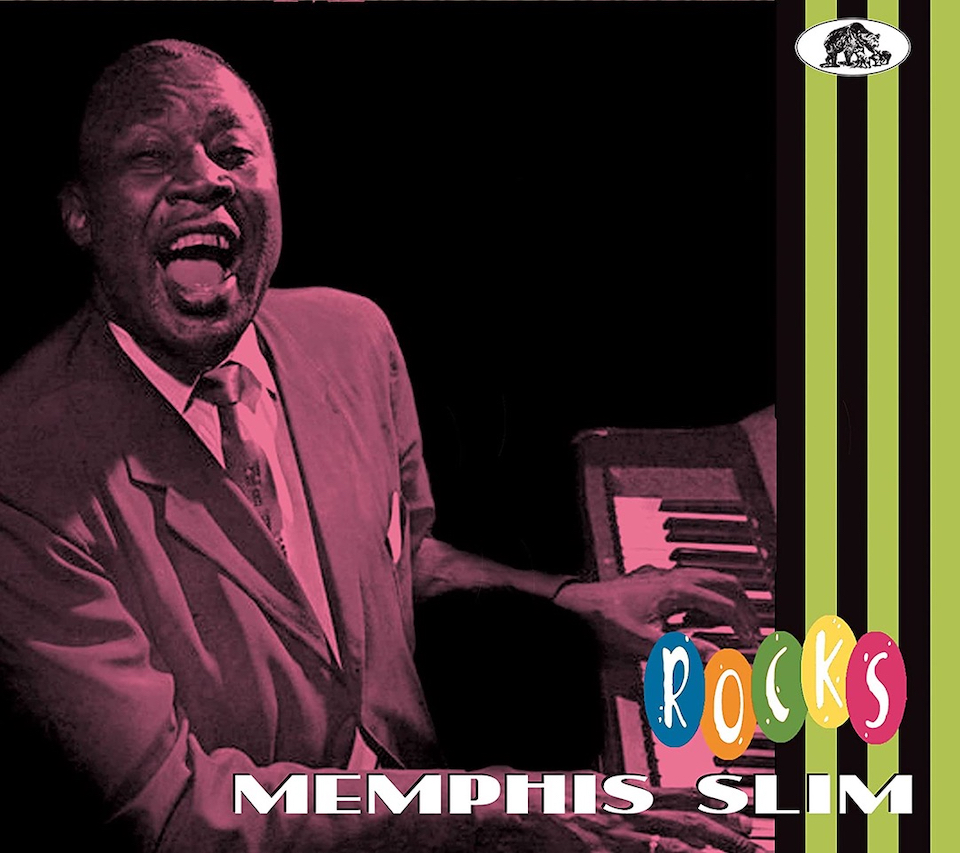
Memphis Slim, Rocks. This album – part of an excellent series that has also featured such seminal artists as Bo Diddley, Hank Ballard, and Ritchie Valens – shines a well-deserved spotlight on blues musician Memphis Slim (nee John Chatman, aka Peter Chatman). A bandleader, singer, pianist, and songwriter from the 1930s until shortly before his death in 1988, he influenced countless artists and recorded songs that have since become standards.
It would take a much bigger collection than this one to provide a comprehensive overview of Slim’s career, but this album, which focuses on rock-leaning material recorded between 1940 and 1961, fits as much as possible into a single CD. Among its 29 tracks, all but two of which are Slim originals, are some of the songs most associated with him, including “Nobody but Me,” which has since been widely covered under the title “Every Day I Have the Blues”; and “Rocking the Pad,” a 1951 version of one of his biggest hits. The album comes with a 36-page booklet that includes an essay about Slim’s career as well as notes and discographic information.
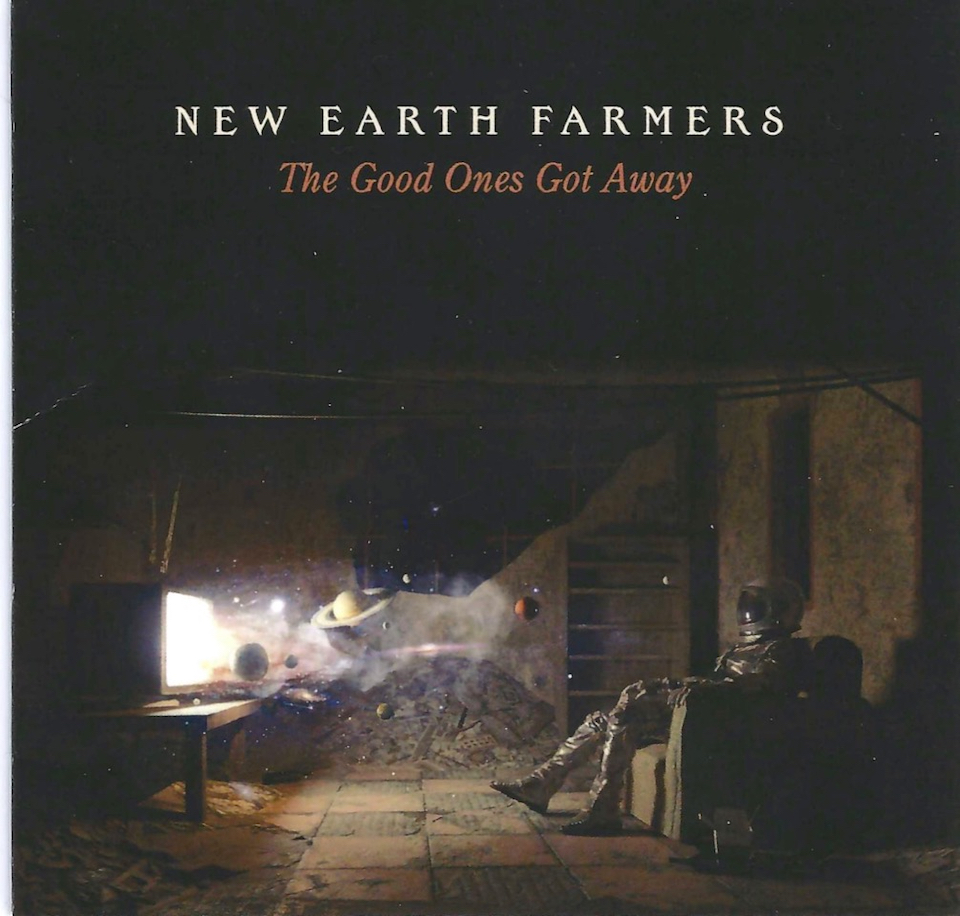
New Earth Farmers, The Good Ones Got Away. New Earth Farmers are a San Francisco–based duo led by guitarists Paul Knowles and Nicole Storto, who wrote most of the songs. Backup musicians include a drummer, another guitarist who also plays lap steel, and a bassist. Though Knowles and Storto previously released records under a similar name, The Good Ones Got Away is being billed as the first full-length release from New Earth Farmers, which also issued an EP in 2020.
The new CD’s eight well-hooked, psychedelia-tinged rock and roll tracks harken back to late-period Beatles and other 1960s bands, so you won’t be surprised to learn that the set includes a cover of “Waiting Such a Long Time,” by World Party’s Karl Wallinger, who mines similar turf. It’s an enjoyable set whose biggest shortcoming may simply be that, with a playing time of just 25 minutes, it ends too soon.
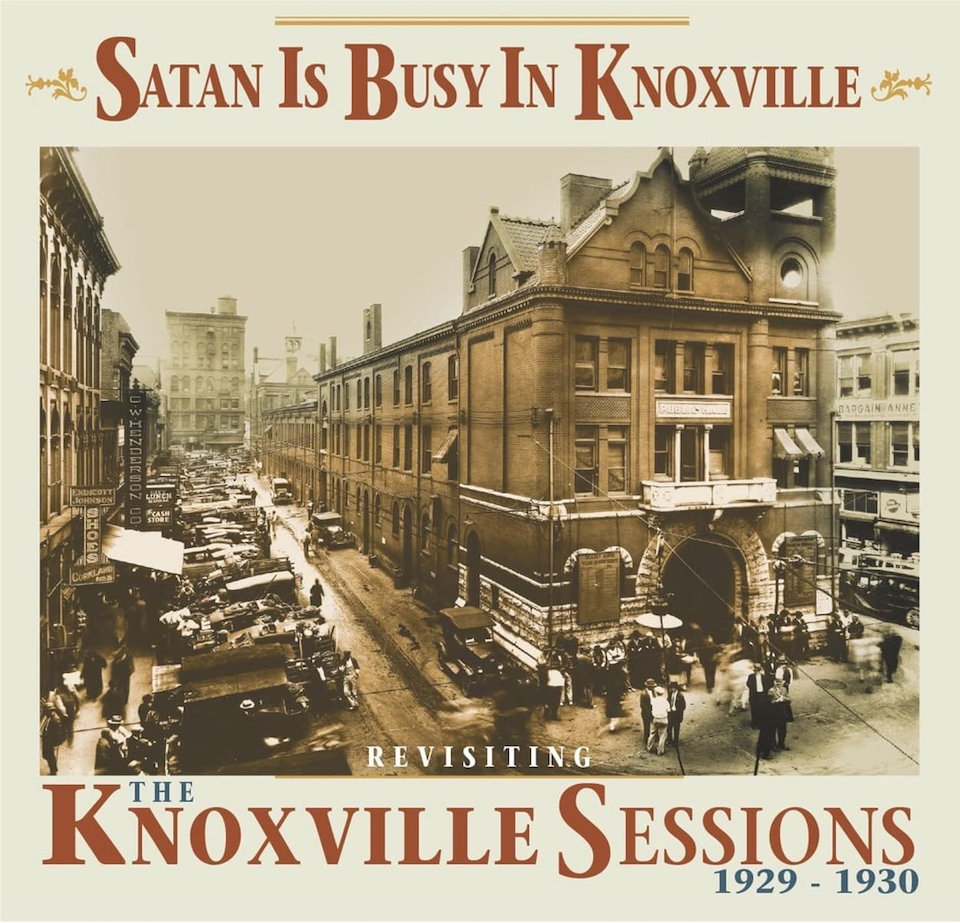
Various artists, Satan Is Busy in Knoxville: Revisiting the Knoxville Sessions, 1929–1930. Recording sessions conducted in 1929 and 1930 in the St. James Hotel in Knoxville, Tennessee, preserved some of the most influential folk, country, and hillbilly music of the early part of the last century – nearly as notable as the material on Harry Smith’s Anthology of American Folk Music. You can find these recordings on a Grammy-nominated four-CD, 102-track set called The Knoxville Sessions 1929–1930, Knox County Stomp, which came out in 2016.
It’s pricey, though, so you might be glad to know that the cream of these sessions is now available on a single, 27-song CD. The eclectic album, which features a black gospel quartet, several string bands, a dance orchestra, and more, offers a window into the past and lots of hints of what was to come. The release includes a 44-page booklet whose well-done multiple essays help to put the music in context.
Jeff Burger’s website, byjeffburger.com, contains five decades’ worth of music reviews, interviews, and commentary. His books include Dylan on Dylan: Interviews and Encounters, Lennon on Lennon: Conversations with John Lennon, Leonard Cohen on Leonard Cohen: Interviews and Encounters, and Springsteen on Springsteen: Interviews, Speeches, and Encounters.


